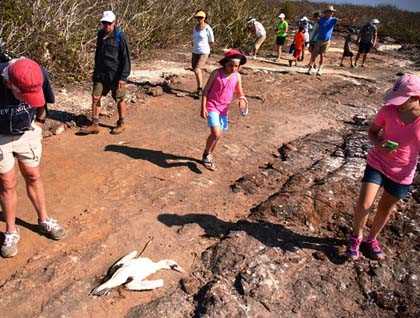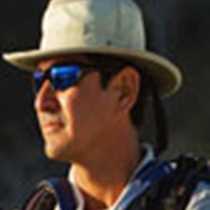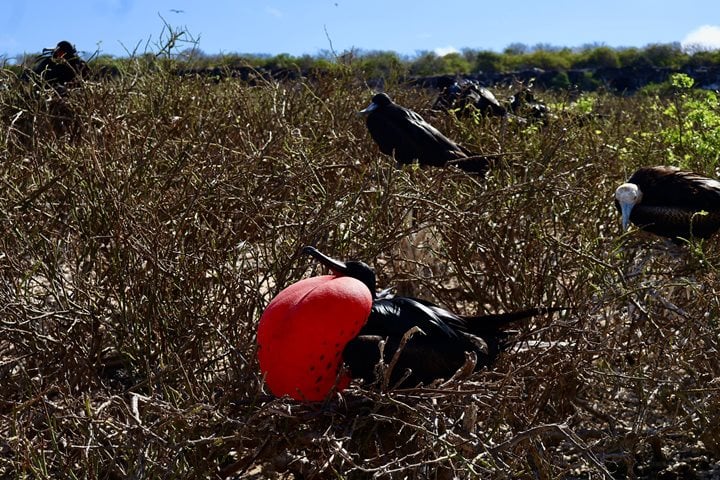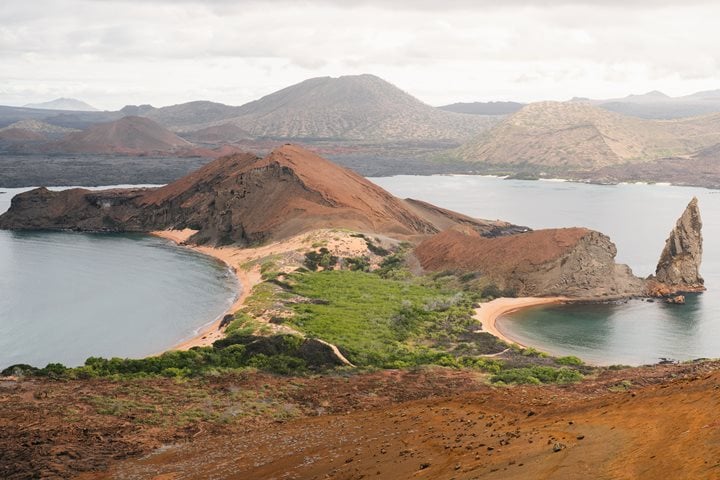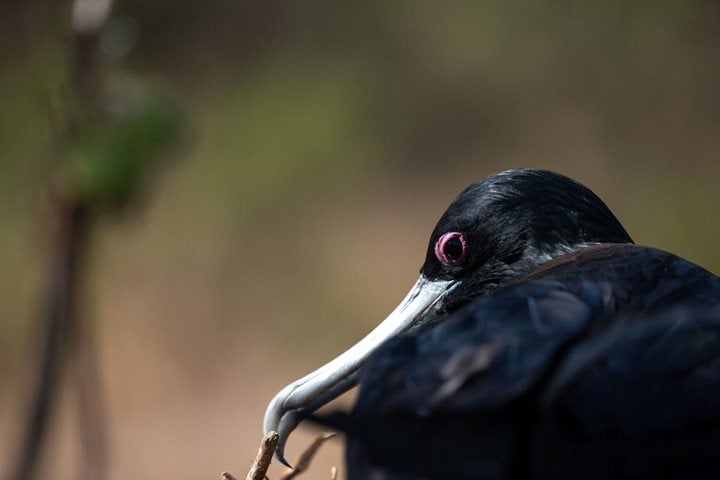Tower, or Genovesa, Island is home to over one million seabirds. Our highlights here were diverse, from Nazca, red & blue-footed boobies and gulls to owls, fur seals, hammerhead sharks, turtles and manta rays.
Our adventure began with a walk that starts at the famous Prince Philip’s Steps where we were surrounded by Nazca, red-footed boobies and frigate bird chicks. Our young explorer Miller was able to find our elusive short-eared owl and save the day. Luckily for us he spotted it hiding at the crevice. All of us felt rewarded to have a unique view of the only camouflaged diurnal raptor. Today was a red-footed booby day and also we were able to spot frigatebirds with chicks and of course the long awaited red-gular-pouch from the bachelors.
Back aboard we prepared for our last snorkeling outing in search the undersea realm. Today we had close encounters with many fish for the last time. Seeing them up-close brought excitement and admiration. Meanwhile, some of us opted for an early kayak outing.
After this great adventure, we came back to our ship anchored inside Genovesa Caldera to be briefed about our departure and enjoy our last delicious lunch, made with pride by our culinary staff.
We were then ready to start our next adventure, which was a wet landing on a white coralline beach inside Darwin Bay, named by a celebrity visitor, William Beebe, in honor of a great naturalist who re-directed human thought, Charles Darwin. At high tide and over a platform we walked surrounded by birds of all kinds, as we studied their chicks, behavior and colors. We were moved to see so many chicks and adult seabirds and parents taking care of them so they could one day fend for themselves. We were also happy to find a few marine iguanas which are smaller and darker as this northern hemisphere island has much different ecology and like a Pitri-dish, different results.
Taking this walk was like being transported back in time. There were birds flying all over, like in prehistoric times, and lava formations resembling the first foundation of Earth. Later, it was time to return to the ship and reminisce about the many experiences of such a wonderful week. As we look back and gaze at the islands for the last time, this place now seems to be timeless to us. It is now deep within our hearts and our experience has been unforgettable on these special islands, where the wildlife has no fear and allows us to realize that we are not so different.
“We must not acknowledge the methodical saying ‘don’t humanize the animals’ but instead ‘animalize the human’ by perceiving our surrounding with all our senses; embracing nature by coexistence and respect for one another, so we can become one with nature as we once were.”
We have all bonded like a family, united by this invisible mysticism. At the end of our journey we hope to stay in touch and that the experience our guests had this week will stay with them for a lifetime.

